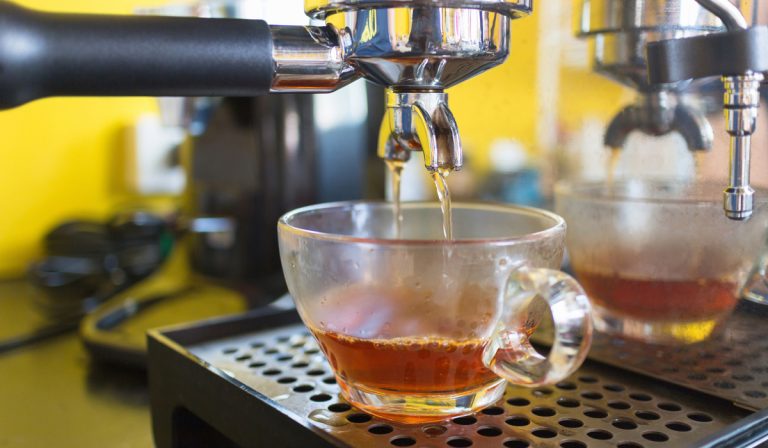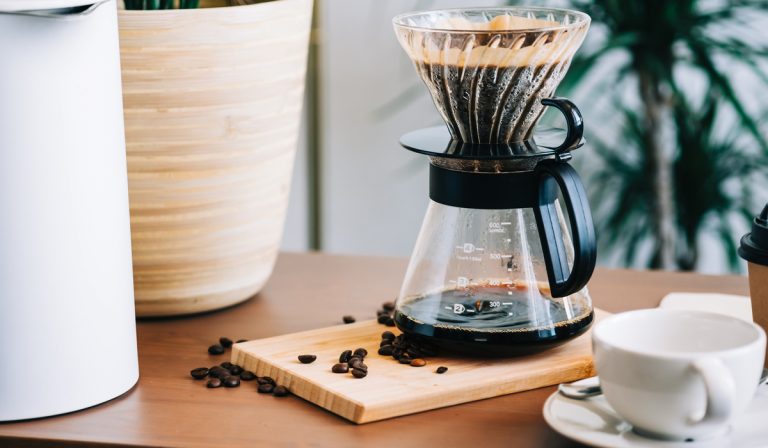Does Beer Brewing Smell? (Ways to Eliminate Odor)
Would you like to brew beer in your apartment? It is a great idea, but there are many things to consider.
Do you have enough space to store your beer? Where will you keep your fermenters and other equipment?
Also, does beer brewing smell?
Beer brewing smells, but it is not a bad odor. Brewing beer produces an aromatic smell, especially when you are boiling the beer. There are several processes involved in brewing that cause the smell.
What processes in beer brewing can cause smell? If you or your neighbors do not like the smell, how can you eliminate it? Continue reading to find out.

Table of Contents
Does Beer Brewing Smell?
Making beer at home gives you a sweet beer. It also gives you a sweet smell. Well, not everyone loves the smell of homebrew as some people can be allergic to it.
There are different types of aromas produced when brewing beer, so if you want to know how to eliminate the smell, you should first know what causes the smell.
Sources and Causes of Smells in Home Brewing
Here are some sources of homebrew odors:
1. Steeping Your Grains
Grain steeping is among the first steps when making homebrew. It involves extracting the flavors, aromas, and colors from grains.
To steep grains, you have to dip the bag of grains into hot water. This process can produce a smell that is not so noticeable.
This smell is completely safe and not toxic. To eliminate this type of smell, you should steep your grains in an open area.
2. Boiling Hops in Your Wort
This is the sweetest aroma produced when brewing beer. When you boil your wort (steeped water with malt extracts), you get a strong aroma that will fill your room.
This sweet aroma is completely safe to smell, and many people love it. Since malt extracts are essential in brewing beer, you cannot replace them with other substances.
To eliminate this smell from disturbing you or your neighbors, you should boil the wort in a well-ventilated space or far from your neighbors.

3. Aeration Before Fermenting
Aeration is just a fancy term that can mean shaking your fermenters before closing their airtight lids. Yeast needs oxygen to ferment your beer, so you should shake your fermenters to increase the oxygen content of your beer.
The smell produced during aeration is not strong but is slightly noticeable. It should not disturb you or your neighbors.
4. Indication of Air Leakage During Fermenting
Another instance when your homebrew can smell is during fermentation.
If you do not properly seal the fermenter, you will perceive the smell of fermentation (smells like compost). You should properly seal your fermenters so that your beer can ferment quickly without problems.
Note that you can use the smell of your fermenting beer to tell if it is ready for bottling or not. Beer not ready for bottling will have a stronger smell than when it is ready.
5. Bottling Your Beer After Fermentation
After fermentation, there is a slight aroma (this one smells like normal beer) that is produced when you are bottling your beer with your equipment.
This smell is pleasant for people that love drinking beer but can be displeasing to those that do not like beer.
In this case, bottling your beer in a well-ventilated space can help prevent the smell from disturbing your neighbors.

Now you know many instances when your beer can produce a smell. If you do not like these smells, how do you eliminate them? Continue reading.
How to Eliminate Homebrew Odor
Well, note that you will grow to love the smell. At first, many people hate the smell produced during homebrew, but they grow to love it, and then some become quite fond of the smell.
Sometimes, your homebrew can produce odors during production. This unpleasant smell could mean different things, but it is best that you get rid of it. Some ways to eliminate odor are:
1. Sanitize Your Homebrew Equipment
One common reason why homebrew can produce an odor is the presence of anaerobic bacteria in the beer. These bacteria are harmful and can make you sick.
The best way to get rid of bacteria is by properly sanitizing your homebrew equipment. Also, make sure that you properly boil your beer to eliminate any germs in it.
Remember to sanitize your equipment. This cannot be stressed enough.
2. Brew and Ferment Your Beer in a Large, Open Space
If you do not like the smell or aroma of your beer during production, you should not brew beer in a little apartment. It is easier to perceive the smell of your beer in a little apartment.
Well, even if you live in a small apartment, you can boil your beer outside, then keep the airtight fermenters inside.
Brew your beer outside so that the inside of your house will not smell like a beer factory.
3. Properly Ventilate Your Room
Ventilation is key. Open your windows, switch on the fan, and make sure that your apartment has proper ventilation. With proper ventilation, you and your neighbors may not notice the smell of your beer during production.
4. Ferment Your Beer in Airtight Fermenters
Remember that if you can smell your beer when fermenting it, it is an indication that the fermenters are not airtight.
Fermentation works best in an airtight environment, so you should properly seal your fermenters.
Sealing the fermenters will help reduce the number of days that the yeast will need to ferment your beer and also help to eliminate the smell of your fermenting beer.
5. Ferment Your Beer Completely Before You Open the Fermenter
If you do not want your room to smell like compost, you should wait until your beer is adequately fermented before you open the fermenter. Beer can take up to two weeks to ferment.
You can tell that your beer is still fermenting when you see it bubbling. When the bubbling has reduced or is just at the surface, your beer is ready for bottling.

6. Always Work in a Clean Environment
What if the smell that you might be perceiving is not from your beer? What if it is from something else in your room?
You can’t be too sure that your beer is producing a pungent smell if your room is not clean.
Clean your room so that germs from the room will not infect or contaminate your beer during production.
7. Seal Your Door
If your neighbors do not like the smell and you live in an apartment, you just have to seal the little passages through which the smell can escape from your room. You should, however, open your windows so that the smell can pass through them and leave your room.
Do not open the windows close to your neighbor to avoid problems.

Useful tips, right? Remember that you (and your neighbors) can grow to love the smell.
Related Questions and Answers
Here’s more info about homebrew smells:
1. Is Homebrew Smell or Gas Toxic?
Note that the aroma that you perceive when boiling your beer is just a smell from grains and other ingredients. The gas produced during fermentation is simply carbon dioxide.
Homebrew smell or gas is not toxic and is completely safe.
2. Do You Need to Boil Your Beer?
You must boil your beer during production. Boiling beer helps to eliminate germs and also helps to mix all your ingredients.
You cannot get the sweetest and most flavorful beer if you do not boil it. Also, your beer may have some germs in it without boiling. Make sure that you boil your beer for a long time.
3. Can You Brew Beer in a Little Apartment?
Even though it looks difficult to make beer by yourself, homebrew is possible in a little apartment.
You can do the steeping and the boiling in the kitchen. You can also keep your fermenters in a kitchen cabinet or under your bed (if there is enough space under your bed).
You do not need the largest house to produce homebrew, so yes, you can brew beer in your little apartment.

4. Can Homebrew Make You Sick?
When done properly, homebrew will not make you sick. Homebrew is free from germs and is also beneficial to your stomach.
Make sure, however, that you do not drink too much because drinking too much beer can get you drunk or make you sick.
5. How Do You Know if Your Beer is Contaminated?
It is not so easy to know if beer is contaminated. Some ways to identify contamination, however, are a foul odor, a horrible taste, a slimy feel, and the presence of mold on the surface.
Please do not consume any weird-looking beer.
Make sure to apply all the tips in this article to produce your beer without much smell.
Final Thoughts
Beer brewing smells, but it is a lovely smell. Different steps in beer production can smell, but note that no smell or gas produced during beer production is toxic or harmful. Make sure that you follow local guidelines when producing your beer.







